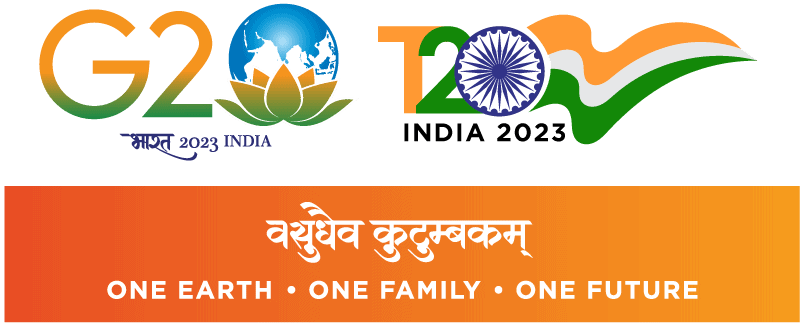Global production has been linear, following a production- consumption-disposal approach resulting in increasing demand and production of all products, especially plastics. With climate change, deteriorating air and water quality, and resource depletion concerns plaguing the planet, as well as a desire to shift towards more efficient production systems, a gradual change in manufacturing systems towards circular processes has begun. The G20 has taken steps towards this, adopting the G20 Action Plan on Marine Litter in 2017 and its Implementation Framework in 2019. While these instruments have driven the conversation around existing production patterns and the need to create a sustainable consumption ecosystem, more needs to be done. As a group of countries that are among the largest producers, consumers, and recyclers of plastic waste, the G20 is the ideal platform to drive the commitment towards sustainable plastic consumption. This Policy Brief seeks to inform policymakers of the multifarious issues around increasing plastic waste generation and suggest policy and fiscal measures that can be adopted during India’s G20 presidency. The brief will highlight the need for a coordinated global response and suggest measures across the plastic value chain, including an action plan for circular economy, data sharing and collection mechanisms, and innovative funding mechanisms.
Creating a G20 Plastic Waste Response Framework for Sustainable Consumption
Abhinav Akhilesh (Grant Thornton Bharat LLP), Pankaj Arora (Grant Thornton Bharat LLP), Kartik Ashta (Grant Thornton Bharat LLP)
This Policy Brief was first published in https://t20ind.org
Abstract
Authors
Abhinav Akhilesh (Grant Thornton Bharat LLP), Pankaj Arora (Grant Thornton Bharat LLP), Kartik Ashta (Grant Thornton Bharat LLP)
Latest Policy Briefs
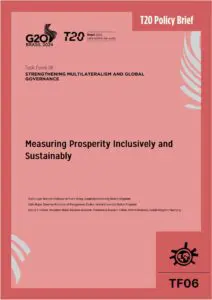
This Policy Brief advocates a thorough shift for the G20 from reliance on GDP as an economic yardstick of national performance and conventional measures of corporate profits as a ...
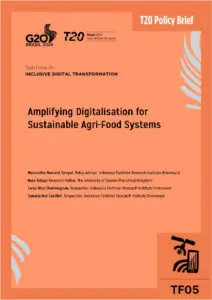
Ensuring food security emerges as a critical global imperative, particularly in the present and future uncertain geopolitical and economic circumstances. The contemporary agri-food systems heavily depend on international trade, ...
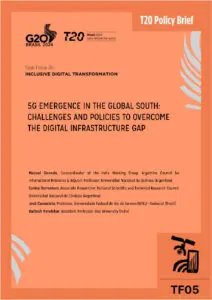
5G Emergence In The Global South: Challenges And Policies To Overcome The Digital Infrastructure Gap
Since 2016 G20 has focused on digital connectivity as an economic prosperity driver and the overcoming of multiple social inequalities. Currently, 5G is playing a prominent role in foreign ...
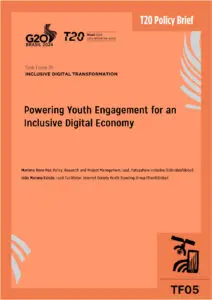
This policy brief advocates for youth meaningful engagement in digital economy policy and leverages youth’s perspectives on how to ensure that new digital technologies advance the Sustainable Development Goals ...
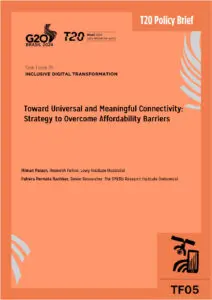
The challenge of digital affordability persists, with approximately 2.6 billion people, one-third of the global population, still lacking connectivity. While smartphones and broadband access are becoming more affordable in ...
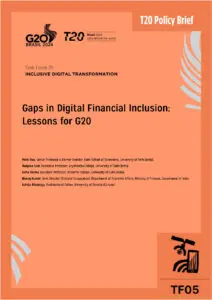
This policy brief aims to construct and analyze indices for access and usage dimensions of digital financial inclusion (DFI) in G20 economies, incorporating demographic characteristics such as gender, age, ...


